Despite Terrible Solar Resources, Xcel Wants to Spend Billions on Solar Panels
The map below, produced by the Energy Information Administration, shows that Minnesota has some of the worst solar resources in the country. Despite this fact, Xcel Energy has announced they want to close down their affordable, reliable Sherco 3 and A.S. King power plants a decade early and replace them with lots of solar, and of course, natural gas.
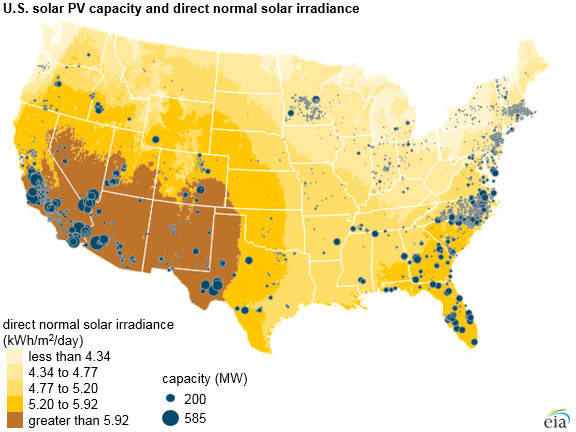
The graph below is from Xcel’s proposed plan for their power system that they will submit to the Minnesota Public Utilities Commission in July. Because Xcel isn’t really a private company (it is a government-approved monopoly utility company) the PUC is supposed to review Xcel’s plan to make sure that it is not going to raise costs for consumers.
“Supposed to” is the operative phrase here.
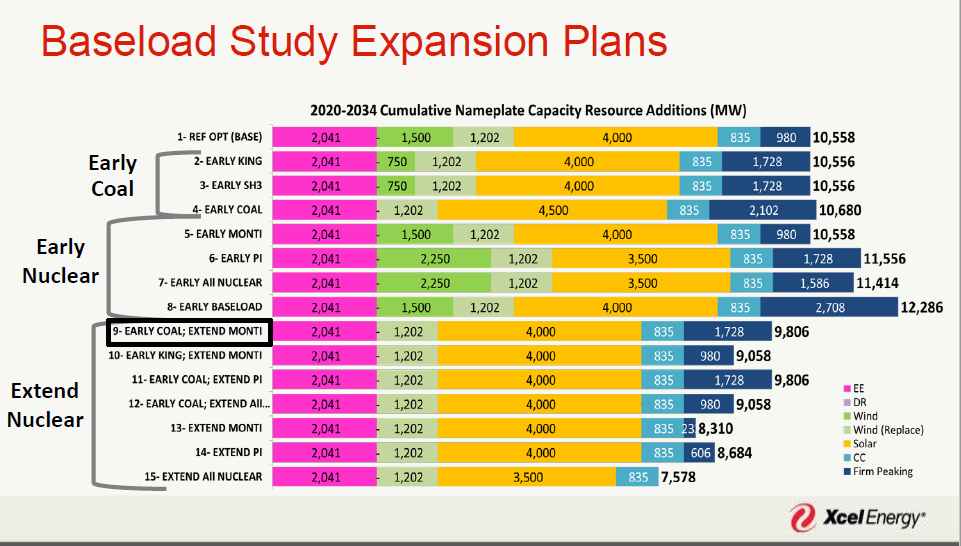
According to Xcel’s plan, the company wants to build 4,000 megawatts of solar in their “preferred plan.” This is a massive amount of solar. In fact, it is nearly twice as big as Sherco 1,2, and 3 combined.
Using the cost estimates to build solar panels from EIA for 2019, building these solar panels would cost $7.5 billion, without federal subsidies. According to Xcel’s own modeling these solar panels would produce electricity that costs far more than the coal-fired power plants they want to close. Especially after the federal subsidies run out in 2023 for solar.
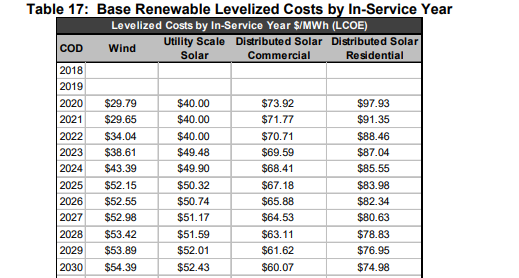
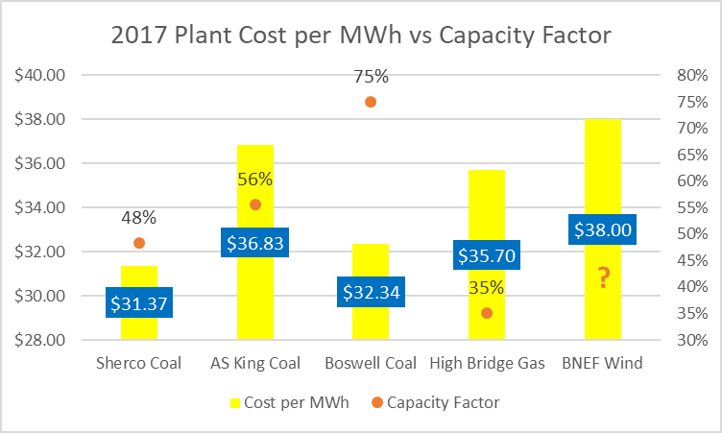
Not only is electricity produced by solar more expensive than the coal plants Xcel wants to shut down before their useful lifetimes have expired, it is also far less reliable. Remember, solar panels are not reliable in winter because according to a solar power installer, it is too expensive to clear snow off of solar panels.
That’s a problem in Minnesota because snowy weather can cause solar panels to be nearly worthless. This was the case on February 5th, when solar panels produced almost zero electricity.
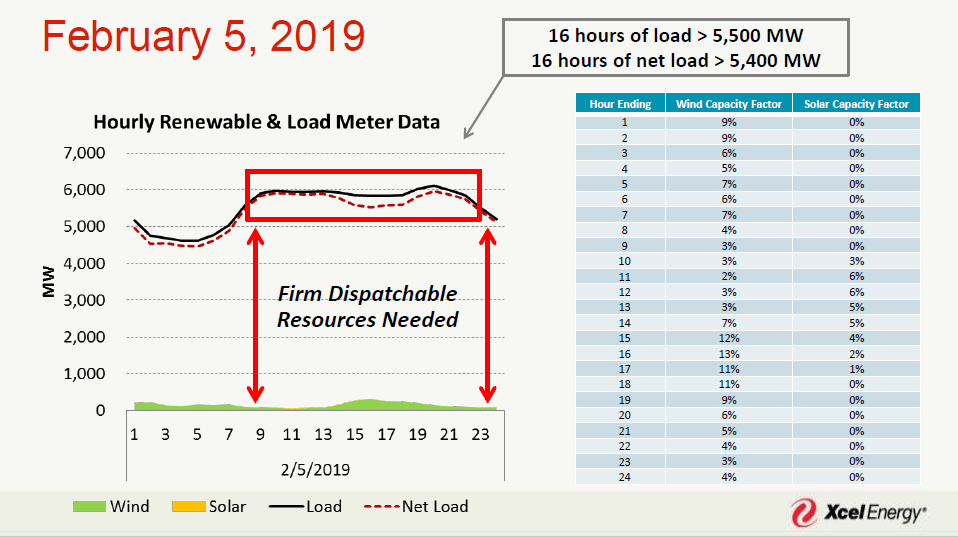
Xcel Energy’s plan is bad news for Minnesota families and businesses. It makes electricity more expensive, and less reliable, but is very profitable for Xcel Energy and their shareholders.
The PUC is supposed to keep government-approved monopoly utility companies from abusing their power and raising prices on consumers. After all, these consumers are forced by the government to buy their electricity from Xcel, so it is the government’s responsibility to protect them from predatory utility practices. So far, the PUC has not lived up to this obligation.
This leads me to believe it is time to start having a very serious conversation about deregulating Minnesota’s electricity sector and allowing Minnesota families and businesses to choose where they buy their electricity from. Of course, this is always my preference, but this article highlights how renewable energy mandates have caused “deregulated” states to have just as much, if not more, regulation than monopoly states.
If the PUC won’t protect consumers, then the consumers need the ability to protect themselves by having choices in a competitive electricity market.